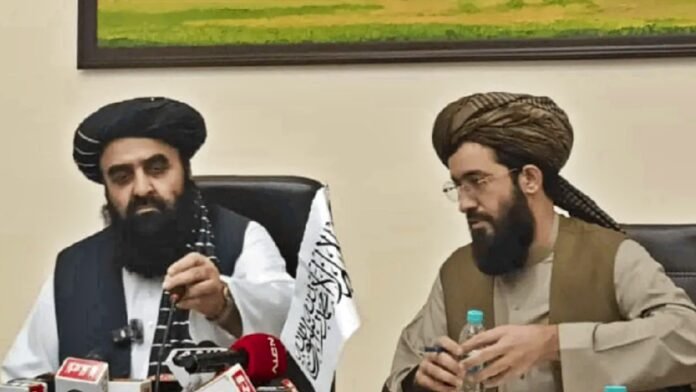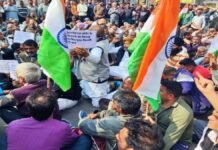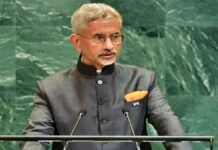
Key Points
- Afghan Foreign Minister excluded Indian female journalists from his Delhi press event, triggering widespread public anger and condemnation.
- Outcry on social media and among journalists, with calls for male journalists to boycott in solidarity.
- Politicians, including P. Chidambaram, demanded a united media response to the Taliban’s regressive policies.
- Incident highlights how the Taliban’s restrictions on women now impact diplomatic settings outside Afghanistan.
- Follows major India-Afghanistan talks covering trade, security, terrorism, and humanitarian relief.
New Delhi: Taliban Foreign Minister Amir Khan Muttaqi’s visit to India was overshadowed by controversy after female journalists were barred from attending his press conference in Delhi, sparking outrage both in media circles and on social platforms. This move, following his meeting with External Affairs Minister S. Jaishankar, reignited criticism of the Taliban’s anti-women policies and prompted debate about press freedom and gender equality in India.
Press Conference Controversy
Amir Khan Muttaqi’s week-long visit to India was intended to reset diplomatic ties and included discussions on trade, security, and regional stability with S. Jaishankar. However, his exclusion of Indian female journalists from the press conference at the Afghan Embassy brought global scrutiny and strong condemnation from civil society, politicians, and media professionals. Many described the act as “unacceptable” and an affront to basic principles of press freedom. Social media users called for male journalists to walk out in protest, and the hashtag #PressFreedom trended across platforms.
Backlash Across India
The ban drew swift criticism from former Union Minister P. Chidambaram, who argued that male journalists should have staged a walkout, a sentiment widely supported in public debate. Media watchdogs highlighted that the incident on Indian soil reflects the Taliban’s continued suppression of women, a policy visible in Afghanistan via restrictions on education and employment since their 2021 takeover.
Symbol of Wider Gender Inequality
The press ban has become a symbol of the severe situation for Afghan women, with activists noting that exclusionary Taliban policies now extend into international engagements. Despite the diplomatic progress seen during Muttaqi’s trip such as discussions to reopen India’s embassy in Kabul and increased development aid his deliberate sidelining of female journalists made headlines for all the wrong reasons.
Social and Diplomatic Impact
The episode has deepened the conversation on gender equality and the responsibilities of the press, raising questions about solidarity and ethical reporting in hostile conditions. The controversy is likely to persist as India continues to engage with the Taliban, balancing strategic diplomacy with concerns about human rights and freedom of the press.














































